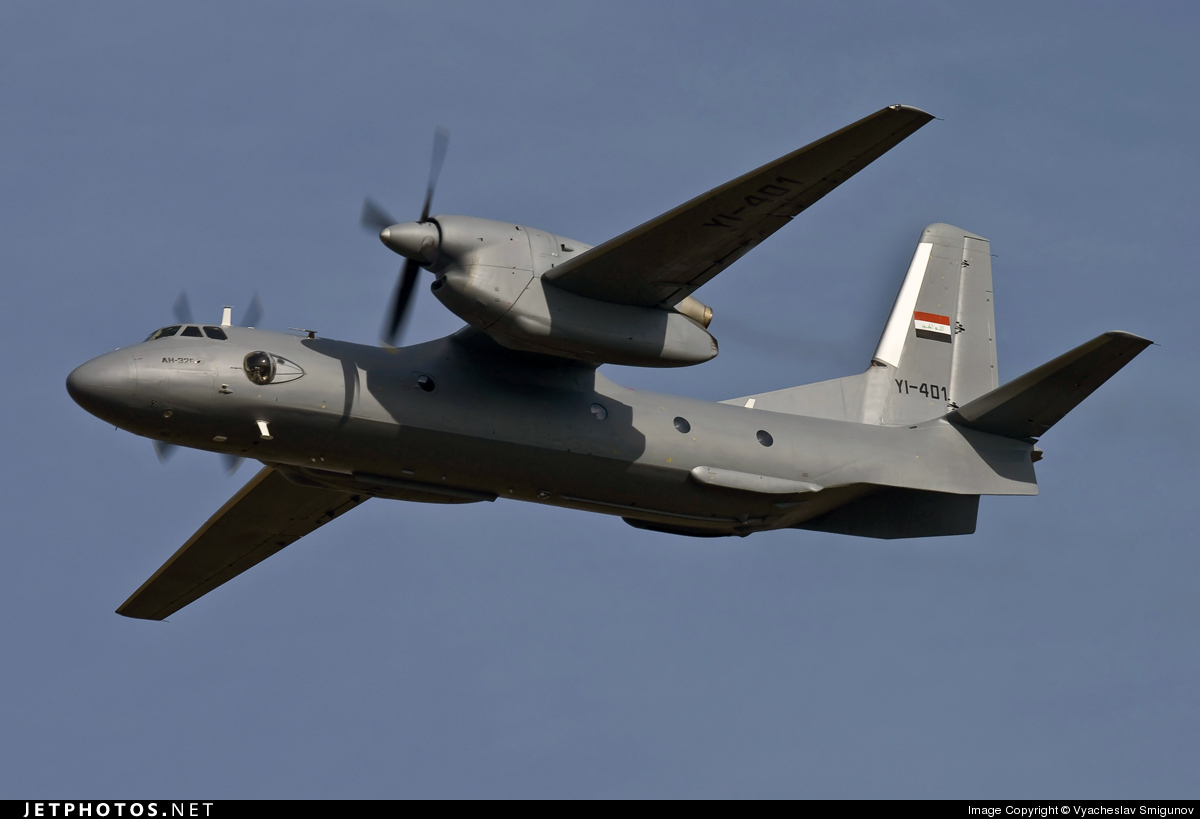
Ukraine Fails to Deliver Personnel Carriers, Aircraft to Iraq on Time
Publication: Eurasia Daily Monitor Volume: 8 Issue: 24
By:

A $550 million contract for Kyiv to deliver 420 BTR-4 armored personnel carriers and six An-32 light military transport planes to Iraq, which was concluded in 2009, faces a crisis. Ukrspecexport, the Ukrainian state-controlled arms exporter, hoped that the first BTR-4’s shipped under the contract would participate in the Iraqi Army Day parade on January 5. However, this did not occur. In December 2010, the Iraqi defense ministry had refused to accept both the BTR’s and the first three An-32 aircraft citing shortcomings exposed when Iraqi visitors examined the hardware during a visit to Ukraine. Ukrspecexport blames the company’s former management and hopes the Iraqis will accept the next batch in February.
The contract to deliver the armaments, one of the largest foreign trade deals secured since Ukraine became independent in 1991, was signed in October 2009 by Progress, a subsidiary of Ukrspecexport. Apart from delivering the BTR’s and the aircraft, it provided for rendering services to repair military aircraft. This was planned as only the first in a series of contracts negotiated with Iraq, and Ukrspecexport reportedly hoped the total value of contracts would amount to $2.4 billion to $2.8 billion as the Iraqis were expected to purchase Oplot tanks and additional support services (RIA, December 11, 2009). According to the contract Ukraine should deliver the goods and services within three and a half years. The Kharkiv-based Morozov tank design bureau, the Malyshev tank plant and the Antonov aircraft manufacturer are the main contractors (Interfax-Ukraine, October 28, 2010).
On January 13, the Kiev-based investigative journalist, Mustafa Nayem, reported in his blog on the Ukrainska Pravda website that Iraq refused to accept the first shipment. Interfax cited an informed source that the delivery of the first 26 BTR’s was postponed until late February. Morozov blamed the faults with the BTR’s on gun producers from the Ukrainian town of Kamyanets-Podilsky (Interfax-Ukraine, January 17). Later, Ukrspecexport announced that it would not be fined by Iraq for the failure to supply on schedule the BTR’s and aircraft. Ukrspecexport’s management stated that it had spared no effort to fulfil the contract and blamed the previous management for the failure. Ukrspecexport also accused unnamed journalists of “discrediting” the company’s current management and alleged that a campaign against it had been launched by “circles not interested in the expansion of Ukraine’s international military-technical cooperation” (Defense-Express, January 20).
Ukrspecexport was probably unhappy with a series of reports in Ukrainska Pravda, which suggested that Ukrspecexport’s recent reorganization and a refusal by the current management to pay intermediaries might have influenced Baghdad’s decision. Ukrspecexport’s head, Dmytro Salamatin, said that several subsidiaries of Ukrspecexport would be liquidated in order to streamline its operations, while its website suggested that Progress (which had concluded the original contract with Iraq) was among those subsidiaries. Moreover, several CEO’s were replaced in Progress in 2010. Salamatin complained that Progress did not share important information with Ukrspecexport, and that it had failed to deliver on several old contracts. However, Ukrainska Pravda in the same article depicted several current senior managers of Progress as being unprofessional.
Ukrainska Pravda also cited sources claiming that Ukrspecexport, under Salamatin, refused to pay fees to an unnamed US-based intermediary whose interests in Ukraine are represented by a Ukrainian citizen. The intermediary expected to be paid 13 percent of the contract value. The website cited Salamatin as saying that such intermediaries were “experienced but selfish” (www.pravda.com.ua, January 20).
The Iraqis who checked the hardware scheduled for delivery in December and January reportedly complained that the BTR’ guns were faulty and found that the An-32’s had been assembled from parts made before 2009, while according to the contract the aircraft should be new. In addition, the Iraqis were dissatisfied with the quality of training for their personnel who were sent to Ukraine under the contract. Ukrainska Pravda suggested that it would be physically impossible to replace the faulty and outdated equipment by the end of February as promised to the Iraqis. It quoted Salamatin as saying that if the entire contact is eventually under threat, the former managers of Progress and Ukrspecexport would be blamed as they had failed to comply with Iraqi requirements (www.pravda.com.ua, January 21).
Meanwhile, Ukrspecexport’s former managers may indeed be in trouble, which could further complicate matters with Iraq. The State Financial Inspectorate has reported that Ukrspecexport’s former managers misappropriated the equivalent of more than $100 million in 2008-2010. The inspectorate head, Petro Andreyev, specified that they were suspected of money laundering (RBK-Ukraine, January 19). This may be part of a campaign launched by President Viktor Yanukovych’s team against former top officials who served in the government of Prime Minister, Yulia Tymoshenko, in 2008-2010. Several former ministers have been charged with corruption. The government says this is part of an anti-corruption effort, but the West recently warned Kyiv against using the prosecution against former government officials who are now in opposition (EDM, January 14).




